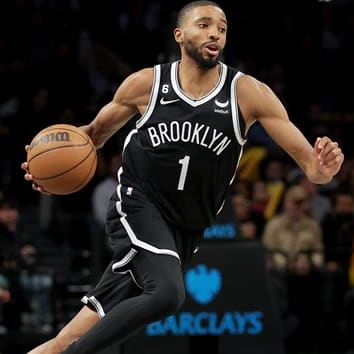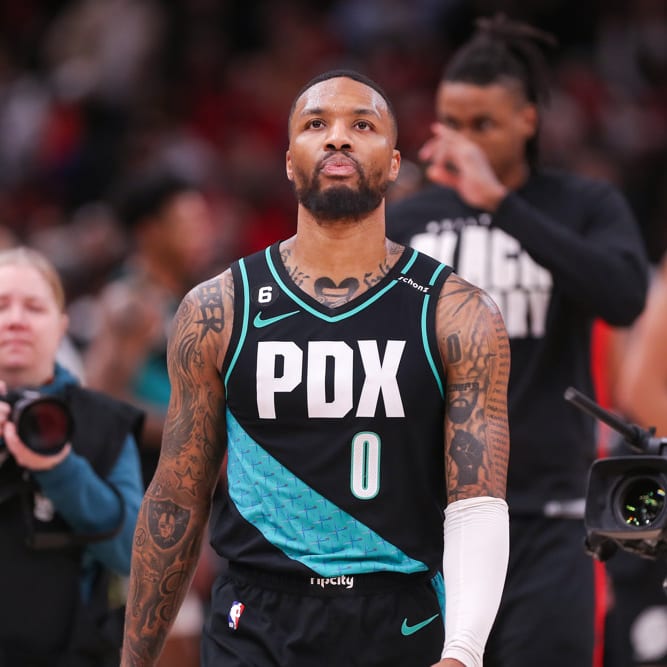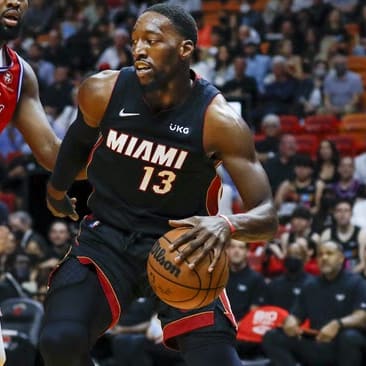Questionable
Injury Personal
Est. Return 10/1/2025
2024 Stats
PTS
0.0
REB
0.0
AST
0.0
STL
0.0
BLK
0.0
2025 Projections

Doesn't play Wednesday
Warren didn't play in Wednesday's 138-123 loss to the Westchester Knicks for personal reasons.
ANALYSIS
Warren is averaging 22.7 points, 6.1 rebounds, 4.0 assists and 1.6 steals in 36.1 minutes across his 21 G League appearances this season. However, it's unclear how long he will be sidelined due to personal reasons.
Warren is averaging 22.7 points, 6.1 rebounds, 4.0 assists and 1.6 steals in 36.1 minutes across his 21 G League appearances this season. However, it's unclear how long he will be sidelined due to personal reasons.
NBA Per Game Stats
Per Game
Total
Per 36
NBA Per Game Stats
Loading Per Game Stats...
2023 NBA Game Log
2023
2022
2020
2019
2018
2017
2016
2024 NBA Per Game Split Stats
Schedule
By Month
Starting/Off Bench
Days Rest
Vs Opp
By Result
2024 NBA Per Game Split Stats
Loading Split Stats...
Advanced Stats
Loading Advanced Stats...
Stat Review
2023
2022
2020
2019
2018
2017
2016
How does T.J. Warren compare to other players?
This section compares his stats with all players from the previous three seasons (minimum 200 minutes played)*. The bar represents the player's percentile rank. For example, if the bar is halfway across, then the player falls into the 50th percentile for that stat and it would be considered average.
True Shooting %
47.9%
Effective Field Goal %
46.3%
3-Point Attempt Rate
31.7%
Free Throw Rate
9.8%
Offensive Rebound %
4.8%
Defensive Rebound %
14.8%
Total Rebound %
10.0%
Assist %
10.1%
Steal %
1.4%
Block %
0.7%
Turnover %
7.2%
Usage %
16.5%
Fantasy Points Per Game
8.4
Fantasy Points Per Minute
0.7
NBA Historical Fantasy Stats
Historical ADP
Loading Historical ADP...
Past Fantasy Outlooks
2021
2020
2019
2018
2017
2016
2015
2014
Warren played just four games last season after suffering a stress fracture in his foot that required surgery. It was a highly anticipated campaign for the forward after he played shockingly well in the 2020 Orlando Bubble, where he averaged 34.8 points, 6.6 rebounds, 2.4 assists, 1.6 steals and 1.4 blocks in the first five games. Warren is expected to come into the 2021-22 season healthy, though injuries have been the overarching story of his career. He's been in the league since 2014 and hasn't played more than 67 games in a season. That hasn't stopped him from being a strong per-game producer, however. From 2016-17 through 2019-20, Warren averaged 17.9 points on 51/36/79 shooting, 4.7 rebounds, 1.3 assists and 1.1 steals in 32.2 minutes -- good for an average per-game fantasy rank of 76.5. In 2021-22, Warren figures to start at small forward for the Pacers. He should be in position to again be a top-100 player, but fantasy managers need to keep in mind his prevalent injury history.
More Fantasy News

Logs triple-double in victory
Warren recorded 11 points (4-5 FG, 3-4 3Pt), 12 rebounds, 10 assists and one block in 36 minutes during Tuesday's 110-93 win over the Long Island Nets.
ANALYSIS
Subscribe now to instantly reveal our take on this news.
Subscribe now to instantly reveal our take on this news.

Leading scorer in loss
Warren played 40 minutes Thursday during Westchester's 121-107 loss versus Austin and compiled 31 points (13-26 FG, 2-9 3Pt, 2-2 FT), eight rebounds, six assists and a steal.
ANALYSIS
Subscribe now to instantly reveal our take on this news.
Subscribe now to instantly reveal our take on this news.

All-around outing not enough
Warren notched 27 points (9-24 FG, 4-10 3Pt, 3-3 FT), 13 rebounds, four assists, one steal and one block in 38 minutes during Saturday's 114-97 G League loss to the Greensboro Swarm.
ANALYSIS
Subscribe now to instantly reveal our take on this news.
Subscribe now to instantly reveal our take on this news.

Hits six threes in G League
Warren registered 31 points (11-21 FG, 6-12 3Pt, 2-2 FT), seven assists, six rebounds, two steals and one block over 37 minutes Thursday during the G League Westchester Knicks' 123-111 win over the Delaware Blue Coats.
ANALYSIS
Subscribe now to instantly reveal our take on this news.
Subscribe now to instantly reveal our take on this news.

Logs season high in assists
Warren played 37 minutes Wednesday during Westchester's 126-119 loss versus the Squadron and tallied 29 points (11-23 FG, 7-15 3Pt), five rebounds, eight assists, a steal and two blocks.
ANALYSIS
Subscribe now to instantly reveal our take on this news.
Subscribe now to instantly reveal our take on this news.
Latest Fantasy Rumors

Working out with Sacramento
Warren is reportedly scheduled to work out with the Kings, Sam Amick of The Athletic reports.
ANALYSIS
Warren is expected to work out with the Kings and could be a candidate to land a short-term contract with the club, especially if Malik Monk's knee and Kevin Huerter's shoulder are not 100 percent before the start of the season. In 11 regular-season appearances with the Timberwolves last season, Warren averaged 3.7 points and 2.0 rebounds across 16.4 minutes per game. While the best years of his career are almost certainly behind him, the 31-year-old could provide solid depth for the club while competing for minutes with Jalen McDaniels and Colby Jones off the bench.
Warren is expected to work out with the Kings and could be a candidate to land a short-term contract with the club, especially if Malik Monk's knee and Kevin Huerter's shoulder are not 100 percent before the start of the season. In 11 regular-season appearances with the Timberwolves last season, Warren averaged 3.7 points and 2.0 rebounds across 16.4 minutes per game. While the best years of his career are almost certainly behind him, the 31-year-old could provide solid depth for the club while competing for minutes with Jalen McDaniels and Colby Jones off the bench.















